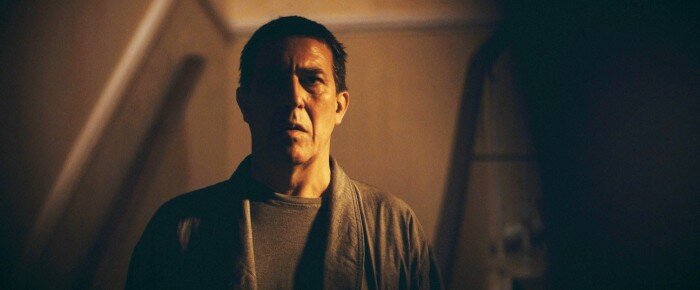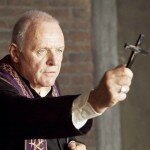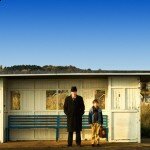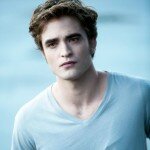The Eclipse, written and directed by Conor McPherson, to put it briefly, is a beautiful low key drama of a man dealing with loss and grief. It’s also the scariest movie I’ve seen in some time. And not just scary in some thematic intellectual sense. Quite literally it’s the jump-in-your seat, screaming-in-the-audience kind of scary.
And it has ghosts in it. Really freaking scary ghosts.
To rewind briefly, The Eclipse follows Michael Farr (Ciarán Hinds), a wood-working teacher at the local school and a father of two who has lost his wife to cancer. Set amongst the seaside Irish town of Cobh, Michael helps out at the annual writer’s festival that’s currently taken over the town, driving around some of the many writers that have flown in to promote their books. His duties at the festival soon have him ferrying about Lena (Iben Hjejle), a writer of a popular supernatural book called “The Eclipse”, as well as the festival’s star author Nicholas (Aidan Quinn).
The inevitable relationship triangle that follows could easily have spiralled into the cliché and irritating, but the film is skilful at quietly and delicately drawing us to these characters, helped in no small measure by some terrific acting. Aidan Quinn doesn’t hold back as the smug, casually condescending and desperately clingy Nicholas, obsessed to distraction with Lena. What could easily have been an irritating comic role is lent a measure of sympathy by Quinn. Iben Hjejle meanwhile evokes a wonderfully natural and understated performance as Lena, whose career is still tied to the ghosts of her own past. But it is Ciarán Hinds that steals the show, masterfully playing the widower Michael as he begins to be haunted (by a ghost perhaps, though it is never made clear) with increasing intensity throughout the movie. Michael has a quiet way about him, almost endearingly clumsy at parts, yet the restrained portrayal of his suffering is painfully real and unsentimental.
What makes it all the more powerful is the film’s overwhelming sense of normalcy – a meticulously natural and realistic portrayal of these characters and their world. The movie luxuriates on little details of ordinary life, lulling the audience into a false sense of security. And that’s when the scares hit. They did not happen often, indeed I could probably count them on one hand. But when they came, boy did they hit hard. I jumped in my seat more than once, and someone screamed (loudly) during one of the more frightening scenes. So intense were the scares that even during the rather moving and beautiful climax of the film, I could not help but think that at any moment another terrifying shock lay around the corner.
Luckily, there wasn’t one, saving the film’s good taste and reminding me that perhaps I had watched too many cheesy horror flicks and was expecting the worst. Yet what was strange was that these were gory ghostly scares, more suitable perhaps for a Korean or Japanese shock-horror movie than a quiet Irish drama. Yet they worked not against the grain of the film, but with it. I’m still trying to wrap my head around why. Perhaps because the film strongly encourages but never confirms the presence of the supernatural, contrasting the talk of ghosts and the terrifying visitations or premonitions with the unspoken assumption that Michael is suffering from intense grief and that his terrors stem from his own traumatised mind.
But at its core, The Eclipse is a truly beautiful and touching film. Its characters feel rich and incredibly real, the setting of the seaside Cobh itself is gorgeous, and the story grapples well with some deep and difficult themes, most of all loss. I also couldn’t go without mentioning the superb original score by Fionnuala Ni Chiosain, which somehow smoothly flowed between the lovely and melancholy and the downright eerie with unnatural ease. And while The Eclipse is certainly not a horror film, it’s probably scarier than any I’ve seen in the past five years, in all the best ways.


![the_eclipse07[1] the eclipse071 600x296 The Eclipse (Review)](/wp-content/uploads/the_eclipse071-600x296.jpg)


![Quiet Chaos [Caos Calmo] (Review) Quiet Chaos [Caos Calmo] (Review)](/wp-content/uploads/quiet-chaos-father-daughter1-150x150.jpg)










